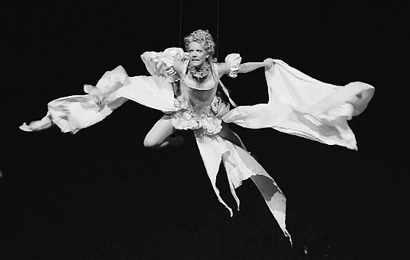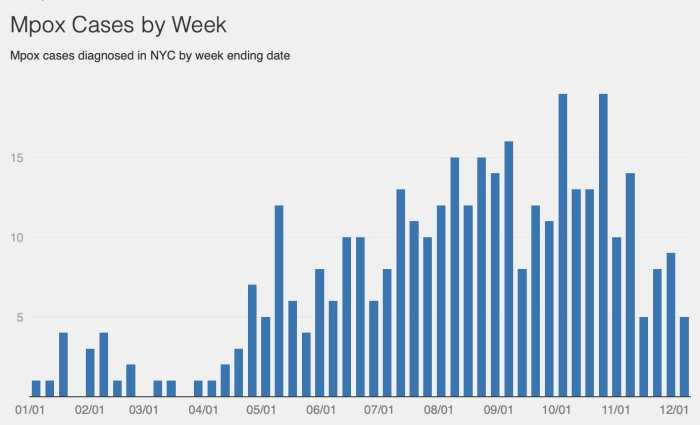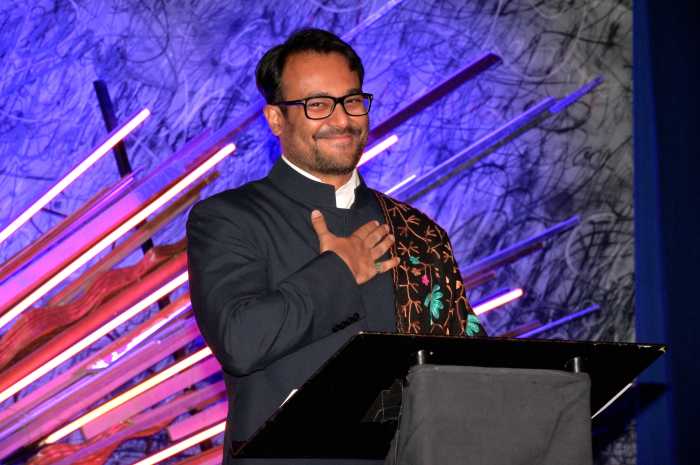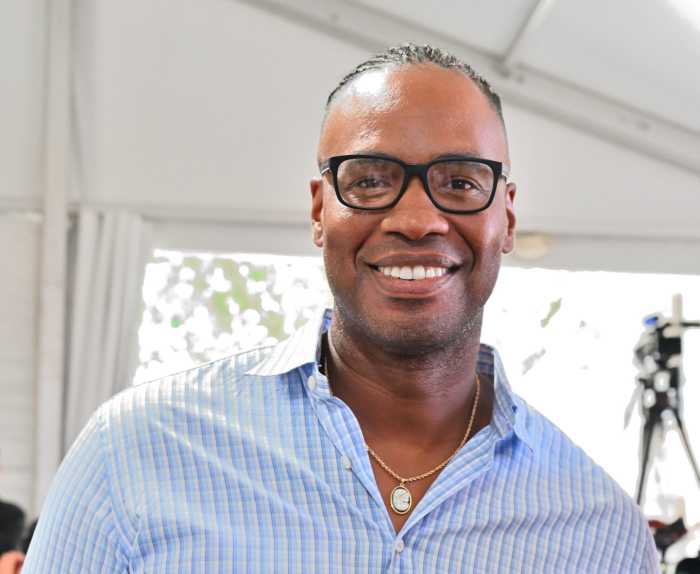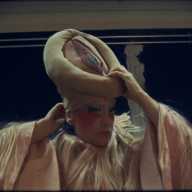Like a bat out of hell, overwrought Frank Wildhorn mega-musical alights on Broadway
A glance at the Playbill title page for “Dracula, The Musical” should have been the tip-off.
Crowding the traditional acting and production credits are a host of new categories, such as projection design, aerial staging, flying and flight director. Entirely omitted is any attribution to the source material, Bram Stoker’s 1897 novel.
But the producers of this lavish, soulless affair at the Belasco Theatre need not worry about a lawsuit from the author’s estate. Don Black and Christopher Hampton, who wrote the book and lyrics, have hop-scotched across the plot so carelessly that precious little remains, requiring the audience to flap its wings double time to fill in the blanks. Inexplicably, the authors also omitted any psychological texturing, so we are left to color in the emotions as well.
Not even the dynamically menacing Tom Hewitt (“The Rocky Horror Show,” “The Lion King”) as Dracula, nor the gracefully genteel Melissa Errico (“Amour,” “My Fair Lady”) as his romantic quarry, Mina, are able to pump enough life into this anemic retread.
When Hewitt sang, “It’s hard to make each moment count when you’re alone,” I resisted muttering “or when you’re onstage before a packed Broadway house.” Titters erupted from the audience at moments when the actors were dead serious. I wonder if the show might be more cogent, and more engaging, if they’d simply played it for laughs.
We’ve all seen some permutation of this timeless legend of the count forever doomed to an eternal existence, subsisting on the blood of innocent, nubile white necks. But if you’re like me, and it’s been a century or so since you’ve read the book or seen a faithful film adaptation, it’s baffling to witness the insect-munching Renfield (Don Stephenson) somewhere in a cave, claiming to share some sort of unholy communion with the master vampire. You try to make sense of how Dracula suddenly bites Mina’s luscious friend Lucy (Kelli O’Hara) by mistake, and what makes the relatively frigid Mina a better catch.
Directed by Des McAnuff, the show premiered to tepid reviews three years ago at Southern California’s La Jolla Playhouse and received several transfusions, which involved allotting Hewitt more power ballads, adding nudity and juicing up the kinetic effects.
As the play unfolded I searched for the plaintive themes that haunt other incarnations of the well-worn tale—repressed dark desire, obsession, ultimate sacrifice—all in the name of love. They were there, somewhere, obfuscated by the gyrations of fairly impressive acrobatics and magic tricks.
Dracula disappears and reappears in the flash of a lightning bolt. A flock of his vampire vixens regularly dance and whoosh overhead, like escaped Furies from a Cirque du Soleil tent. Abundant mist from blown dry ice creeps across the stage. After a while, though, these flourishes register more as desperate than delightful.
I even attempted to make a connection between Mina’s willingness to sacrifice her life in the heat of romance to some lovers of today, specifically, their inscrutable willingness to practice unsafe sex. The crucifix, meant to protect Mina from the murderous Dracula, which she brazenly shucks to the ground, might easily have been a condom. But no, that’s giving the show far too much credit.
The lush, gothic score by Frank Wildhorn, known for such crowd-appeasers as “Jekyll & Hyde” and “The Scarlet Pimpernel,” is pleasantly serviceable, though frequently lyrics are unintelligible, which is a problem since they are saddled with the task of story exposition.
Perhaps set designer Heidi Ettinger should have been billed above the title along with the two lead stars. Her elegantly handsome art nouveau details—the stained glass windows are nothing short of magnificent—are often more thrillingly evocative than the music or dialogue. Doors and stairs and sundry period furnishings pop up and vanish as swiftly as the vampires themselves, yet with more character.
Is one night of true love worth dying for? Is a life everlasting worth living if you’re alone? These concerns faintly occur to us, yet fail to resonate. Ultimately, only one truly heart-pounding question is raised by this overwrought, underwritten folly of a musical: How’d they do that?
We also publish:
ADVERTISING

